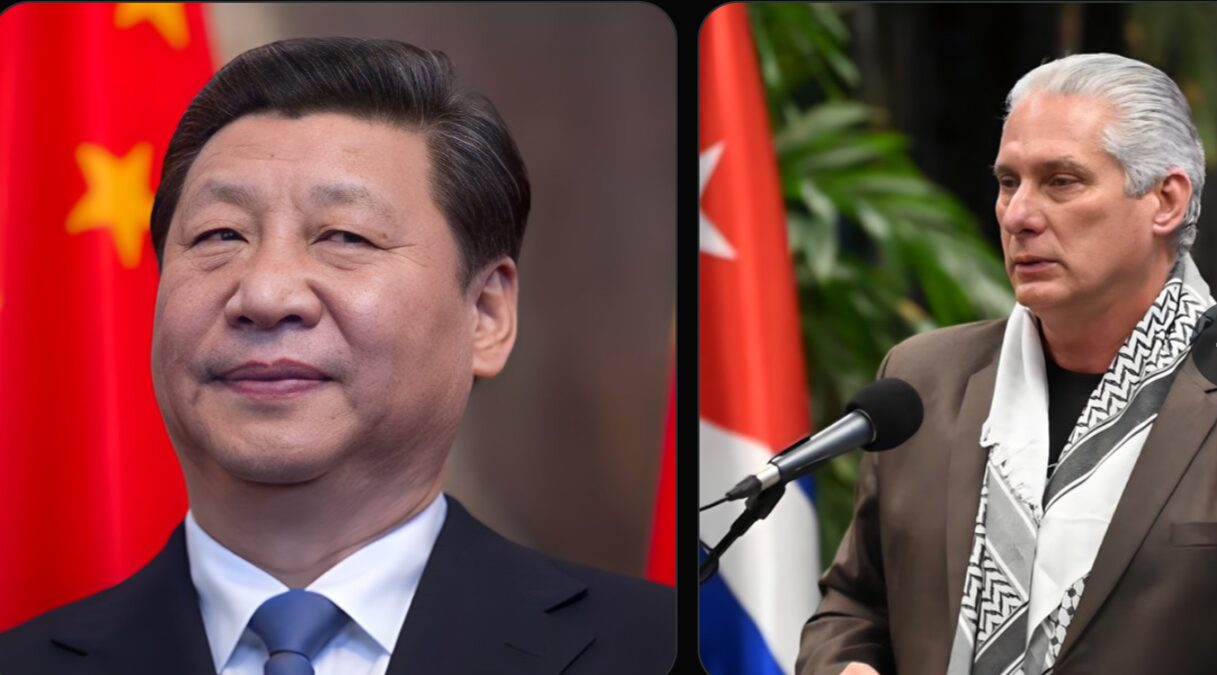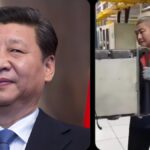CHINA has delivered a SECOND BATCH of electrical equipment to CUBA
In a demonstration of continued bilateral cooperation, China has delivered a second batch of electrical equipment to Cuba, further strengthening the ties between the two nations. This delivery of vital infrastructure equipment is part of an ongoing effort to support Cuba’s energy sector and assist in its recovery from numerous challenges, including a long-standing economic blockade, power shortages, and the aftermath of natural disasters. The latest shipment of electrical equipment is seen as a critical step toward improving Cuba’s electricity grid, ensuring a more reliable energy supply, and aiding the country’s broader economic recovery efforts.
The delivery follows a previous shipment made in 2024, highlighting China’s ongoing commitment to supporting Cuba’s energy needs. This development comes at a time when Cuba is grappling with significant energy shortages, particularly as the country seeks to modernize its infrastructure while simultaneously dealing with financial and logistical difficulties. The relationship between China and Cuba has grown over the years, with both countries emphasizing the importance of mutual assistance in achieving their economic and social development goals.
The Importance of the Electrical Equipment Shipment
Cuba has faced chronic energy shortages for many years, largely due to aging infrastructure, economic challenges, and limited access to modern technologies. The delivery of electrical equipment by China is therefore seen as a crucial contribution to the country’s energy sector. The new equipment is expected to be used to upgrade and replace outdated components in Cuba’s electricity grid, which has been plagued by frequent outages and inefficiencies.
These shortages have had a significant impact on daily life in Cuba, with power cuts affecting everything from basic services to businesses and healthcare facilities. As the country struggles to boost its economy and provide for its citizens, reliable electricity is seen as a critical component for sustainable development. The Chinese government, recognizing this need, has provided Cuba with a variety of electrical equipment, including transformers, cables, and power distribution systems, all of which are necessary for modernizing the country’s power infrastructure.
The arrival of this second batch of equipment comes at a particularly crucial time for Cuba, which is focused on long-term recovery following the economic strain exacerbated by the COVID-19 pandemic and the ongoing U.S. economic embargo. By helping Cuba to address its power shortages, China is not only supporting the nation’s energy needs but also contributing to its broader development strategy.
China-Cuba Relations: A Long History of Cooperation
The relationship between China and Cuba dates back to the 1960s, with both countries sharing a strong commitment to socialist principles and solidarity against imperialism. Over the decades, the two countries have maintained a friendly and cooperative relationship, with China providing Cuba with crucial support in areas such as trade, infrastructure, and medical assistance.
China’s support for Cuba’s energy sector is just one example of the broader economic and diplomatic cooperation that has defined their bilateral relationship. In recent years, China has become one of Cuba’s most important partners, particularly as Cuba has sought to reduce its dependence on Western countries due to the ongoing U.S. embargo. China has invested heavily in Cuba’s infrastructure, offering loans and technical assistance in a variety of sectors, including telecommunications, energy, and transportation.
The cooperation between the two countries has also expanded in the fields of education, health care, and agriculture, with China providing Cuba with medical supplies and expertise to help strengthen the island’s healthcare system. This growing partnership has been mutually beneficial, with China gaining access to strategic partnerships in the Caribbean while Cuba receives the support it needs to develop its economy and improve the standard of living for its citizens.
Addressing Cuba’s Energy Crisis: The Role of International Partnerships
Cuba’s energy crisis is one of the most pressing challenges facing the island nation today. The country’s energy infrastructure is in desperate need of modernization, as many power plants are outdated and inefficient. In addition, Cuba has limited access to foreign investment due to the U.S. embargo and the island’s strained relations with many Western countries. This makes it difficult for the country to secure the funds necessary to invest in modernizing its electrical grid and expanding its energy production capacity.
To address these challenges, Cuba has turned to international partners such as China for assistance. The two countries have collaborated on various energy projects, with China providing both financial support and technical expertise to help Cuba enhance its energy infrastructure. The electrical equipment being delivered is a significant part of this effort, but it is just one piece of a larger strategy to build a more sustainable and resilient energy system in Cuba.
While China has been a key partner in providing support to Cuba’s energy sector, other countries have also contributed to the island’s efforts to tackle its energy crisis. For example, Cuba has sought to diversify its energy sources by investing in renewable energy projects, particularly solar and wind power, to reduce its dependence on imported oil. However, given the scale of the energy challenges, foreign assistance remains essential for Cuba to address its long-term energy needs.
The Geopolitical Significance of China’s Support for Cuba
China’s delivery of electrical equipment to Cuba carries broader geopolitical significance, especially in the context of the strained relationship between Cuba and the United States. The U.S. economic embargo on Cuba has made it difficult for the island to access financial resources, modern technology, and the international markets it needs to fuel its development. In this regard, China’s support for Cuba stands in stark contrast to the U.S. policy of economic isolation.
Cuba’s close relationship with China allows the island nation to secure much-needed assistance and technology from one of the world’s most powerful nations, despite facing obstacles from Western powers. This partnership is also significant for China, which sees Cuba as an important strategic partner in the Caribbean and Latin America. China’s involvement in Cuba’s energy sector not only strengthens bilateral ties but also boosts China’s influence in a region traditionally dominated by U.S. influence.
The delivery of electrical equipment to Cuba also demonstrates China’s growing role as a global leader in providing development assistance to countries in need. Through initiatives such as the Belt and Road Initiative (BRI), China has been increasing its engagement with developing nations around the world, offering infrastructure development, loans, and trade opportunities. Cuba, as part of this broader strategy, benefits from this partnership by receiving the support it needs to improve its energy infrastructure and economic prospects.
Cuba’s Energy Future: Challenges and Opportunities
The ongoing support from China, including the recent delivery of electrical equipment, is a crucial step toward addressing Cuba’s energy crisis. However, challenges remain. Cuba’s energy system continues to face significant hurdles, including a lack of access to modern technology, a shortage of trained personnel, and the limitations imposed by the U.S. embargo. While the Chinese equipment and expertise will help modernize Cuba’s electrical grid, the island must also continue to invest in long-term solutions, such as expanding renewable energy capacity and increasing energy efficiency.
The Cuban government has recognized the need for a comprehensive approach to energy reform, which includes increasing domestic production, reducing energy waste, and modernizing its electricity grid. By focusing on renewable energy sources and diversifying its energy mix, Cuba hopes to reduce its dependence on imported oil and create a more sustainable energy future. However, the country’s limited resources and the continued impact of the U.S. embargo present significant obstacles to achieving these goals.
As Cuba continues to recover from the economic hardships of the past several years, the support from China and other international partners will be essential for the country’s energy and economic development. The delivery of electrical equipment is just one part of a much larger effort to build a more resilient and self-sufficient energy sector. By collaborating with countries like China, Cuba has the opportunity to modernize its infrastructure, improve its energy security, and lay the foundation for a more sustainable and prosperous future.
Conclusion: Strengthening Ties and Securing Cuba’s Energy Future
China’s delivery of a second batch of electrical equipment to Cuba represents a critical step in the ongoing effort to modernize Cuba’s energy infrastructure and ensure a more reliable power supply for the island. This delivery reinforces the growing relationship between China and Cuba, which has become an essential source of support for Cuba’s energy sector and broader economic recovery. As Cuba continues to face significant challenges in its energy sector, international partnerships like the one with China will play an increasingly important role in helping the country meet its energy needs and secure a sustainable future.

















Post Comment